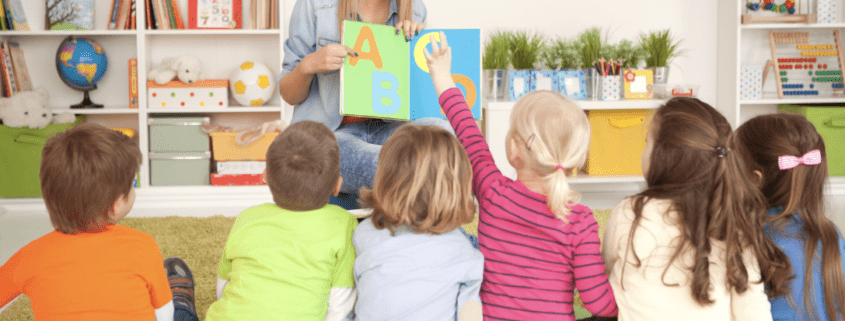Kindergarten is a crucial time in a child’s life. It strengthens them academically and can heavily impact their social and emotional skills. As important as adjusting to Kindergarten is, it can also be challenging.
If your child is having trouble adjusting to Kindergarten, it is important to know the warning signs and be there to support them and help them build confidence and independence.
How Can I Tell My Child is Struggling To Adjust To Kindergarten?
There are many signs of a maladjusted Kindergartner. Keep an eye on your child for the following traits.
- They show signs of anxiety.
If your child shows nervousness or displays anxious behaviors, they may have trouble adjusting to Kindergarten. Examples of this could be separation anxiety from you or your partner, trouble sitting still or focusing, a lack of motivation, or a negative attitude about school.
Anxiety can also have physical symptoms in addition to emotional symptoms. For example, if you notice your child has had a headache, stomach ache, or has just not been feeling well frequently, that can be a tell-tale sign of difficulty adjusting to Kindergarten.
Take a look at their sleep patterns, eating habits, and other behaviors, and if you sense there may be a problem, bring your child to their pediatrician and express your concerns in private without letting the child know.
- They are unusually angry or frustrated.
Is your child constantly complaining or upset? If so, their crankiness could stem from difficulties adjusting to Kindergarten. Whether they complain about going to school or misbehaving, sit them down and find the root of the problem by asking them specific questions about how things are going.
- They are falling behind in school.
Falling behind academically or receiving poor grades could be a sign that your child is struggling to adjust to Kindergarten. While occasionally struggling academically is normal, if it becomes an ongoing pattern, they may need extra support from a tutor, their teacher, or you. Come up with a plan to help your child because struggling is hard, but struggling alone is even harder.
- They refuse to discuss school.
If your child refuses to talk about or answer your questions about school, a more serious issue could be possible. Your child should be excited to tell you about their day, and if they seem unusually disinterested, quiet, or sad, this can signal they are having trouble adjusting to Kindergarten. Continue asking them questions and if it becomes a pattern, talk to their teacher to find out if they are struggling in the classroom.
How Can I Help My Child Adjust To Kindergarten?
As a parent there are things you can do to help your child succeed in Kindergarten!
- Be an active listener.
The most important thing you can do to help your child adjust to Kindergarten is to show you care and are there for them. Be a good listener by letting them speak and hearing what they have to say. It can be really difficult for kids to open up about their struggles, as they may feel ashamed or embarrassed. Take the time to truly listen to everything they have to say, creating an environment of openness and trust.
- Allow your child to grow.
It can be difficult for parents of young children to let their child experience stress or difficulty; however, we must acknowledge change and difficulty are an important part of life and growing up. While you want to be there to support your child, you ultimately have to let them figure it out on their own. Acknowledge their fears and provide advice, but don’t overstep. Feelings of anxiety or nervousness are completely normal and expected, especially when first adjusting to Kindergarten. If their struggles continue to increase or become abnormal, you may need to talk to their teacher or seek professional help.
- Talk to teachers.
Feel free to reach out to your child’s teacher to gauge how they are doing at school and see if they have any feedback. Remember, they most likely have worked with children at many different levels of adjustment and are there to help you and your child.
- Get them involved in extracurriculars or activities.
Young children need to be active and involved in activities. Sign them up for an extracurricular activity. Examples of these can be sports, music, art, writing, acting, or any hobby they’ve shown an interest in. This can help them make friends, stay active, and have fun.
Don’t stop there; bring playtime home and play games or do activities with them by playing outside, going to a museum, or going on walks. Additionally, set up a playdate for your child with a student they are friends with or have expressed interest in getting to know better.
- Set healthy habits.
Make sure your child has consistent bedtime and morning routines, as children need adequate sleep and a set schedule. They should go to bed and wake up at the same time every day and get 10 to 13 hours of sleep each night.
Cadence Education Can Help Prepare Your Child for Kindergarten
Kindergarten Club is designed to help students become more comfortable adjusting to Kindergarten by instilling confidence and allowing them to thrive in an educational, fun, and nurturing environment.

